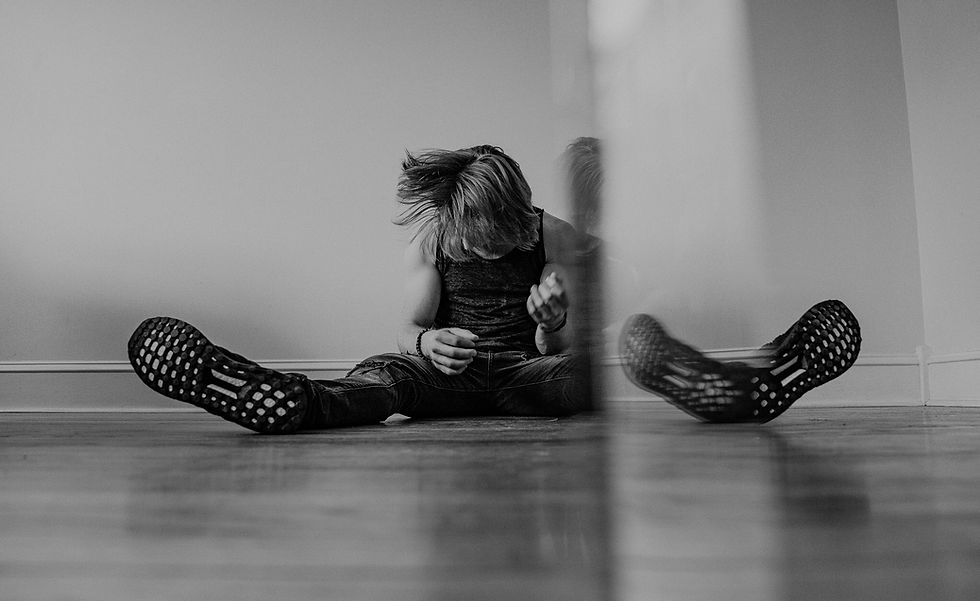It's Okay to Blur the Lines
- Dive In Magazine
- Feb 3, 2019
- 4 min read
Written by Chris LaCroix
Photo Provided by Leslie Stevens

It’s Saturday night in Capitol Hill. The streets are vibrating with the hip and funky, who bounce between bars and galleries, drinking, smoking, laughing, and yelling. The corners spew jazz sax, solo guitarists, and music from the bucket drummers. Lines string along the sidewalks in front and beside the music venues. This is everything you’d expect in the cool part of a city on a weekend night.
In the basement of Neumos, a metal show is gearing up. This second venue is Barboza, a long, low-slung room with overstuffed half-round booths lit by candles in burnt orange glass. A dozen people stand quietly, looking at the lady on stage. In a short-sleeved black dress and a white stetson with a single partridge feather trailing off the back, Leslie Stevens stands and begins to sings. She is a captivating reprieve from the bustle upstairs and outside.
She and her opener, Bob Sumner, play the kind of country music I imagine my grandparents would have listened to. It’s the kind of sad music that is composed of living in a place where work is drudgery, people make bad choices, and loss is expected. There is no twang, no anthemic patriotic pandering. Just stories about how truly difficult life can be. And how hard it can be to find help.
At one point in the set Stevens addresses the unintended theme of the night - suicide. Her next song “Depression, Descent” talks about the recent suicides in her life, and Bob Sumner had a song earlier about the drunken and depressed people in his life with the refrain "May the bridges you burn light your way back home." She promises to sing something fun afterward.
Speaking to her before the show she spoke about her songs, saying that “the hope doesn’t make it through sometimes," though much of her new album, Sinner, contends with other heavy and depressing subjects besides suicide. Some of these topics are: becoming a single mother, friendly fire and government propaganda, and unwanted pregnancy. Stevens says outright that “love is a really important force.” She wants the hope inherent in surviving all the stories she tells to be the memorable factor of her work.
“If someone’s feeling sick and having a hard time,” she says, “talking about it can help. And worrying about bumming people out is a reason people don’t talk about [suicide] enough.” Being in this long, dark bar it’s easy to understand the isolation of depression, and how the thoughts grow, then compound and have nowhere to go. “Sometimes that cloud, that darkness is so thick…talking about it makes that cloud darker instead of lifting that cloud.” And so this is why she promised to play a fun song after.
That fun song is a singalong of "It’s Okay to Trip, but Don’t Fall" with a kazoo call-and-response to the audience. And following that is another whimsical “It’s okay…” song - "It’s Okay to Drink and Drive in Heaven". As fun and light-hearted as these are, there’s still the core of drinking, depression, and legal problems that gives birth to the need to joke about them.
The tempering factor to what seems like an absolute bummer of a show is Leslie’s utterly enchanting voice. It may seem trite, but sometimes the meaning of the words she sings disappears, coated as it is in sultry silkiness. It’s the kind of voice that comes with the need to smile, to push through every difficult thing in life, to not be crushed under “that darkness.”
Earlier in the set, during "12 Feet High," there were moments in the chorus when she sang “darlin’” several times. Each iteration of that word started high but soft and drifted almost to an inhale, receding but holding on, and trailing to a plaintive whisper. It didn't let go, but it didn't hold on. It’s the kind of voice that makes you want to stay.
Holding pace with this vocal wondrousness is a slide-guitarist who only deepens the effect in Leslie’s words. And there are moments when the music, ahead of the vocals, carries past country or rock and becomes part of the story being told. “The reason I like country, or punk, or hip hop, is because of the stories they tell,” she says. “I like complicated things.”
As we talked about how people have interpreted her new album, and other work she’s done, we came across the complicated situation in front of country music right now - that of Lil’ Nas X, and the nature of genre and race. “I feel like genre lines are very much drawn around race lines. And this is something, when you look into the history of studios, is very problematic.” She feels there needs to be more diversity in every genre. So, I ask her, “Who’s someone you might want to cover that your fans might not expect?” And almost before I finish the question: “Tupac. I love Tupac. I think he’s brilliant.” But, “Being a white lady…I’ve felt fraught just doing Tupac karaoke before.”






Comments